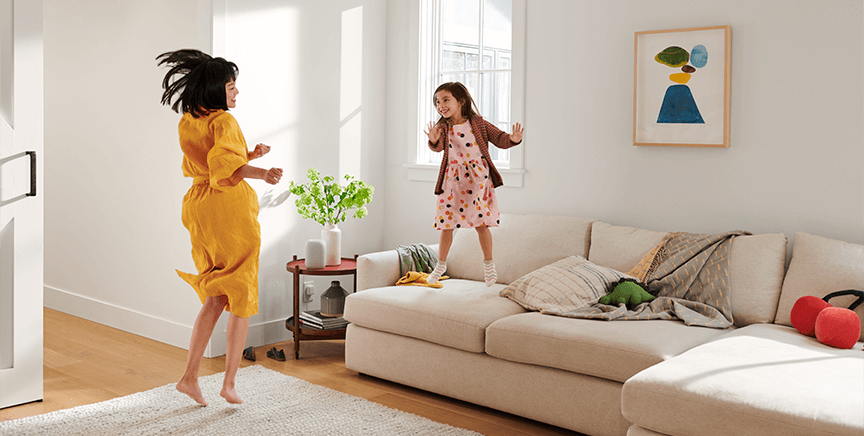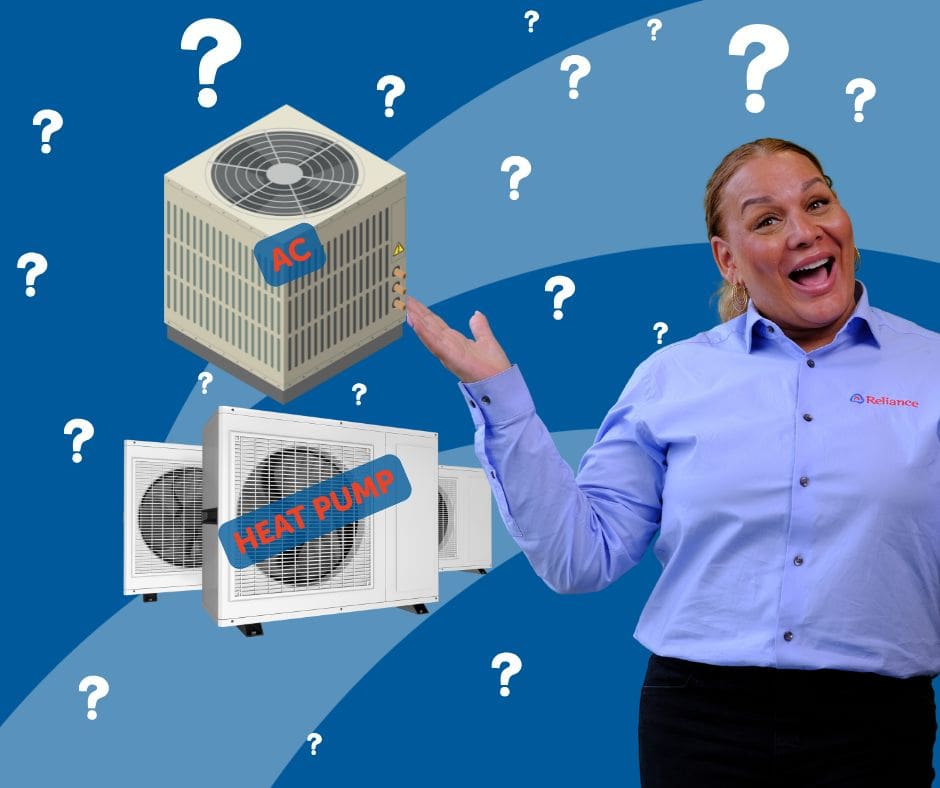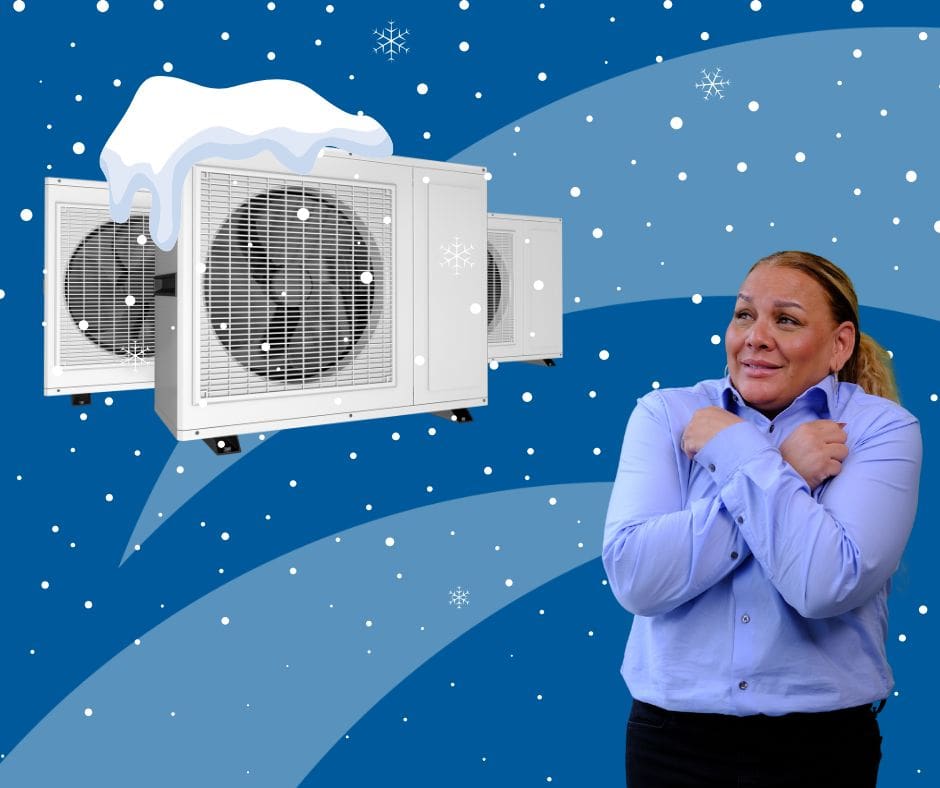Ever hear the term heat pump and wondered what it means exactly?
Heat Pump technology has been around for a long time and it is commonly used in many parts of the world as a way for families to both heat and cool their homes. It can be an efficient and cost-effective way to stay comfortable, while possibly helping to reduce your carbon footprint.

Something
How Heat Pumps Work
The best way to describe a heat pump is like an air conditioning unit that can operate in reverse. During the summer, it helps to keep you cool by removing heat from inside your home and moving it outside. It keeps your home comfortable in the cooler months by removing heat from the outside air and circulating it back indoors. These units run on electricity, and work seamlessly with your furnace or back-up heat source so that your back-up heat source automatically takes over when the temperature becomes too cold outside for the heat pump to work effectively. And for added convenience, heat pumps can also work with your existing ductwork and furnace fan to move air throughout your home.
Types of Heat Pumps
There are several different types of heat pumps that are available, depending on your needs, your current heating and cooling set-up, and your budget. The most common is Air Source, and as the name suggests, it absorbs heat from the air and moves it either in-to or out-of your home, depending on the season.
Geothermal, or ground source heat pumps, operate like the air source units, however they use the earth or ground water to source and to expel heat. The more consistent temperatures found underground can help to make this type run more efficiently, especially during the hotter and colder days of the year.
Stand-alone, Ductless Heat Pump units that do not require traditional ductwork are also available. Benefits Using a heat pump could create greater overall comfort in your home, providing consistent temperatures throughout the year.
Heat pumps move heat rather than creating it, so they can help to reduce your energy consumption and your costs, especially during milder months. Since they run on electricity, heat pumps may produce lower CO2 emissions than a furnace that burns fossil fuels, depending on the cleanliness of your electricity supply. And since your furnace won’t need to be running as much, you could reduce your emissions even further and help to protect yourself from fluctuating fuel costs.
Rent or Buy
Think a heat pump might be right for you? One of our Home Comfort Advisors can help you decide which type and model might be best for your needs. There are also options to purchase your equipment or take advantage of our rental program for one low monthly fee – which includes expert installation, 24/7 live support, repairs and service. To book your FREE in-home consultation or to speak with a Home Comfort Advisor on how we can help to reduce your carbon footprint, Call on Reliance™.
Visit our Green Solutions page to learn more about the environmentally sustainable Home Comfort products we have








